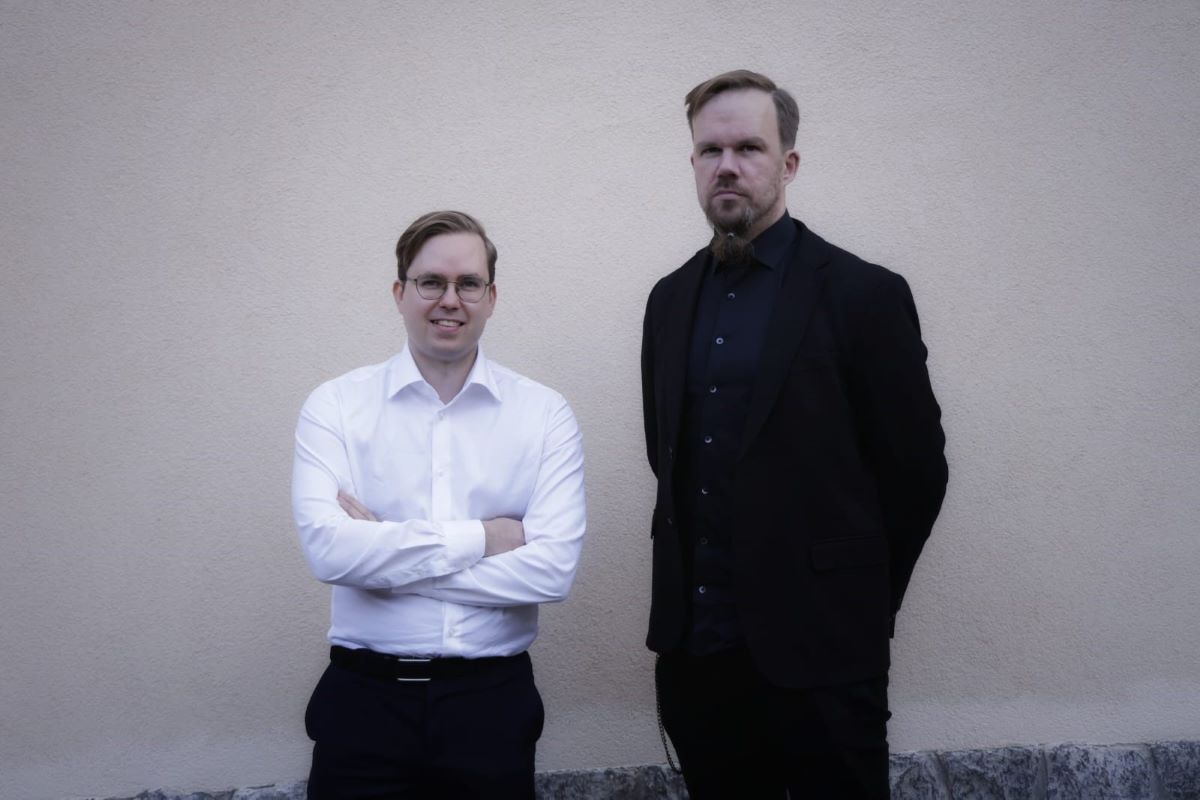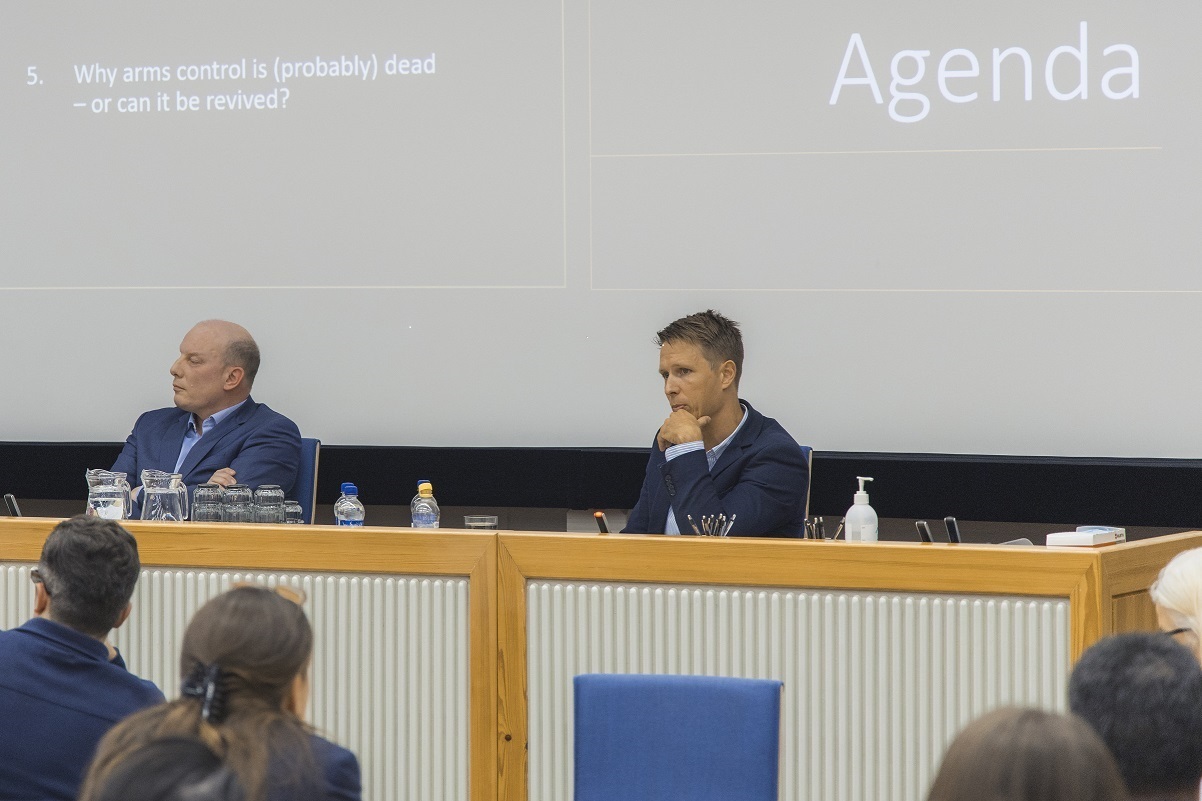Too little research is being conducted on the Chinese People’s Liberation Army - the National Defence University took on the challenge
The majority of research on the People’s Liberation Army is conducted in the United States and, so far, the European perspective has not attracted a great deal of attention. Europe, in fact, has a growing need to strengthen its own research networks, so that the effects of China’s military progress would be better understood. The seminar China's Military Modernization and Growing Capabilities in the Age of Strategic Competition held on 21 October 2025 came as a response to this need convening European scholars specialized in the People’s Liberation Army to Helsinki. The event was the first of its kind in the history of the National Defence University, and speakers included researchers from Sweden, Norway, Estonia and Germany.

The Chinese People’s Liberation Army is the world’s largest military in terms of manpower, and during the regime of China’s current President Xi Jinping, major steps to modernize it have been under way. The formerly ground forces-based mass army is intended to be forged into modern, internationally competitive armed forces by 2049 marking the 100th anniversary of the founding of the People’s Republic of China. The National Defence University has been studying Chinese military strategy actively for six years already. Two full-time researchers specialized in China are in charge of this research work.
“I would say that at the moment, the National Defence University’s research on China is focused particularly on the relations between China and Russia, Chinese hybrid influencing operations, integration of Artificial Intelligence into warfare and, of course, the Arctic Region”, Assistant Professor of the Department of Warfare Matti Puranen sums up.
Research focuses on the modernization of the People’s Liberation Army
The seminar presentations covered, among other things, the relations of the Chinese military with the civilian society, and the increase in the use of dual-use technology. Dr. Christian Wirth (German Institute for International and Security Affairs) pointed out in his presentation that even if China would probably reach by the mid-century the technical capabilities necessary for conducting modern warfare in its adjacent regions, it would still lack the crisis-resistant military infrastructure based on alliances. This is why its ability to conduct high-intensity operations farther away from the continent would remain limited. The armed forces also suffer from institutional problems as surveillance by the Communist Party weakens the operational culture which should be focused on genuinely military competence instead of political loyalty. The publication on the topic by Wirth is available here.
For his part, Professor Henrik Stålhane Hiim (Norwegian Institute for Defence Studies) has studied China’s changed nuclear strategy. In his presentation, he gave possible reasons for why the country has expanded its nuclear arsenal considerably over the past years. In the course of five years, China has more than doubled its stockpile of nuclear weapons, and according to estimates, the country may have up to 1 000 nuclear warheads by 2030. According to Hiim, China’s actions are based first and foremost on an endeavour to strengthen the credibility of its nuclear deterrence and to make sure that the country will be able to maintain its deterrence value also in the face of the United States developing its own weapon systems. He has covered the topic in this publication, among others.
According to Hiim, what makes research of the topic particularly important is that China’s actions have a direct impact on the nuclear programmes of the United States and Russia, for example, which, in turn, are relevant to the security situation in Europe. The study brings forward the idea that at the worst, we might find ourselves faced with a new global arms race that will erode the very significance of international arms control.

Goal of intensifying research cooperation
Organizing a seminar was the idea of the Department of Warfare Chinese studies scholars and Hiim. The wish expressed was to create an opportunity to intensify Nordic and European cooperation in the field of research involving the Chinese armed forces. Assistant Professor Puranen and Sasu Katajamäki, researcher at the Department of Warfare state that the Nordic countries as well bring new perspectives into research related to China, for example via expertise involving the Arctic Region and Russia.
“At the moment, researchers in Europe specialized in the People’s Liberation Army are scattered in different universities, so close-knit networks have not yet been able to be formed. That is why we wanted to organize an event offering experts in the field not only an opportunity to open up these themes to the general public, but also to create a foundation for deeper cooperation for the future”, Puranen says.
“Researchers in the Nordic countries study especially developments linked to our own region. Even if there are not many, we still obtain valuable information about China’s activities, for example through ongoing dual-use projects or military exercises conducted by China in cooperation with Russia in our neighbouring regions”, Katajamäki adds.
Hiim is also very happy with how the seminar was organized emphasizing the importance of European research cooperation in the future. Currently, the majority of the research involving the Chinese People’s Liberation Army is conducted in the United States. Even if the research is very high quality, the perspectives and interests of European and American researchers differ occasionally from one another.
“I find this initiative by the NDU very welcome. China poses unique challenges to Europe which are different compared with those involving other regions, so independent European research, including its development is important”, Hiim says.
Studies on China achieved at the NDU are available in the Doria digital publication archive. The numbers of domestic publications are on a steady rise. Next spring, among other things, a report on the cooperation of Russia and China in the Arctic Region related to dual-use thematics is intended to be published. What is more, researchers at the Department of Warfare produce actively material to be published in international publications as well. The seminar was highly appreciated, and Assistant Professor Puranen estimates that similar events are bound to be organized in the future as well.



